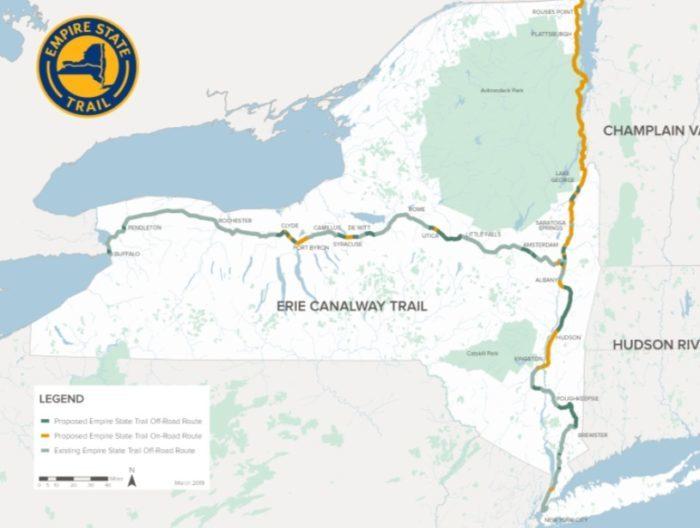ALBANY – Parks & Trails New York announced the launch of an economic impact study of the Empire State Trail. Led by LaBella Associates with support from the Institute for Transportation Research and Education at North Carolina State University, this will be the most comprehensive greenway economic impact analysis ever undertaken in New York State, and perhaps anywhere in the US.
The Empire State Trail, extending 750 miles and renowned as the longest multi-use state trail in the nation, offers much more than stunning views and recreational opportunities. This study aims to quantify the trail’s wide-ranging economic contributions, encompassing tourism-related spending, real estate value, business recruitment, and public health benefits. By capturing data across these diverse sectors, the study will provide valuable insights into the trail’s impact on New York’s economy and the well-being of its communities.
The upcoming data-driven economic impact report will also interrogate the degree to which the economic benefits of the trail are or are not realized equitably across the trail corridor. The study will combine use of multiple data sources with an on-the-trail intercept survey to gather immediate feedback from those using the trail as well as a web-based survey which participants who have visited the Empire State Trail in the past year can take at any time after their trip.
Parks & Trails New York encourages the public to support this landmark report by taking part in the brief online survey, which launched on September 8.
“Public participation is a crucial part of the upcoming study,” said Paul Steely White, executive director of Parks & Trails New York. “Without public input, we won’t see the full picture of what we know to be the important economic impact of this incredible state resource. This is an exciting opportunity to highlight the trail’s role in driving economic growth, enhancing public health, and attracting investment to New York State.”
The results of this study will serve as a critical tool for policymakers, advocates, and stakeholders, providing credible data to support future investments in trail infrastructure and programming. It will also underscore the trail’s significance as a catalyst for community development and economic prosperity. For more information on the study or to participate in the survey, please visit: https://go.ncsu.edu/est_fullsurvey
